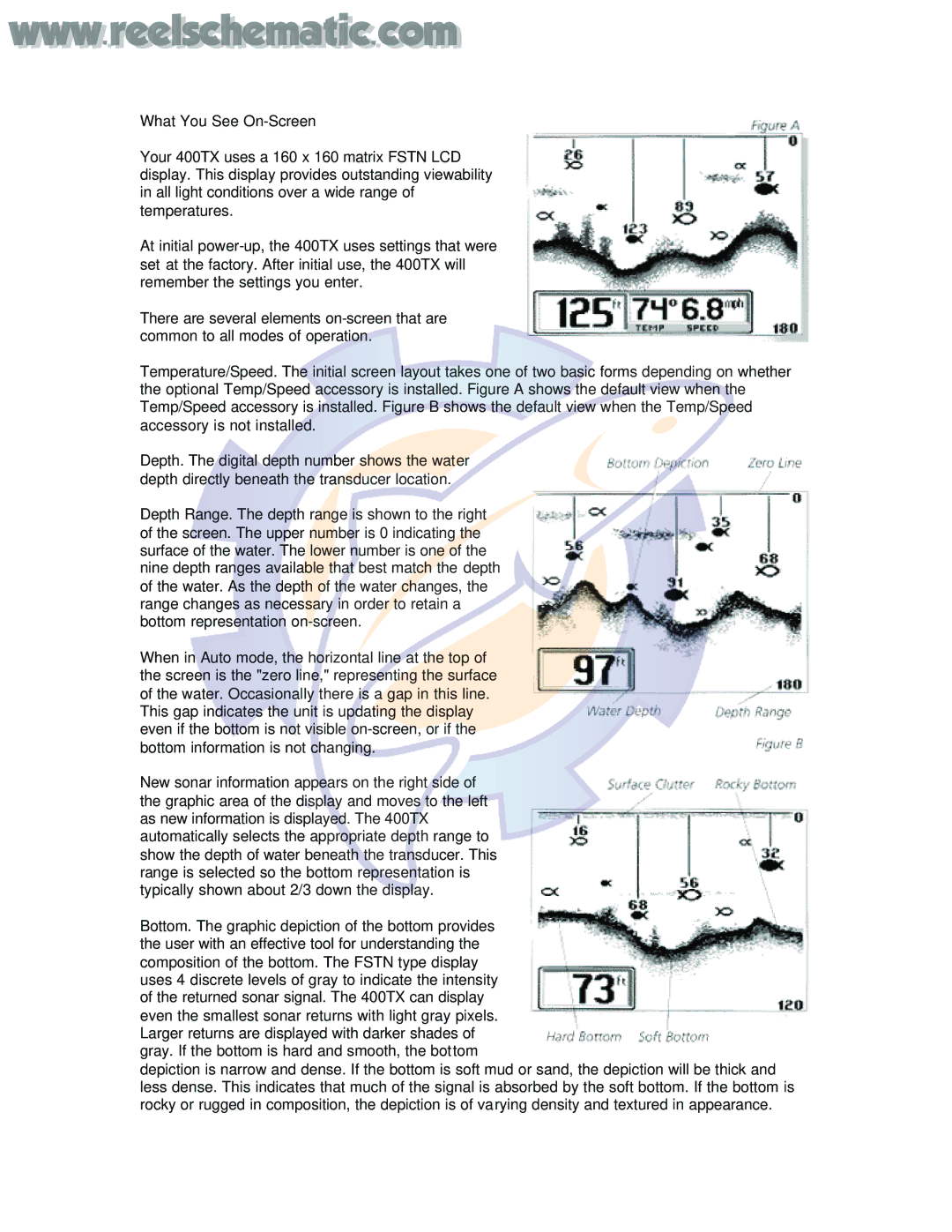
www..reelschel matic..com
What You See
Your 400TX uses a 160 x 160 matrix FSTN LCD display. This display provides outstanding viewability in all light conditions over a wide range of temperatures.
At initial
There are several elements
Temperature/Speed. The initial screen layout takes one of two basic forms depending on whether the optional Temp/Speed accessory is installed. Figure A shows the default view when the Temp/Speed accessory is installed. Figure B shows the default view when the Temp/Speed accessory is not installed.
Depth. The digital depth number shows the water depth directly beneath the transducer location.
Depth Range. The depth range is shown to the right of the screen. The upper number is 0 indicating the surface of the water. The lower number is one of the nine depth ranges available that best match the depth of the water. As the depth of the water changes, the range changes as necessary in order to retain a bottom representation
When in Auto mode, the horizontal line at the top of the screen is the "zero line," representing the surface of the water. Occasionally there is a gap in this line. This gap indicates the unit is updating the display even if the bottom is not visible
New sonar information appears on the right side of the graphic area of the display and moves to the left as new information is displayed. The 400TX automatically selects the appropriate depth range to show the depth of water beneath the transducer. This range is selected so the bottom representation is typically shown about 2/3 down the display.
Bottom. The graphic depiction of the bottom provides the user with an effective tool for understanding the composition of the bottom. The FSTN type display uses 4 discrete levels of gray to indicate the intensity of the returned sonar signal. The 400TX can display even the smallest sonar returns with light gray pixels. Larger returns are displayed with darker shades of gray. If the bottom is hard and smooth, the bottom
depiction is narrow and dense. If the bottom is soft mud or sand, the depiction will be thick and less dense. This indicates that much of the signal is absorbed by the soft bottom. If the bottom is rocky or rugged in composition, the depiction is of varying density and textured in appearance.
